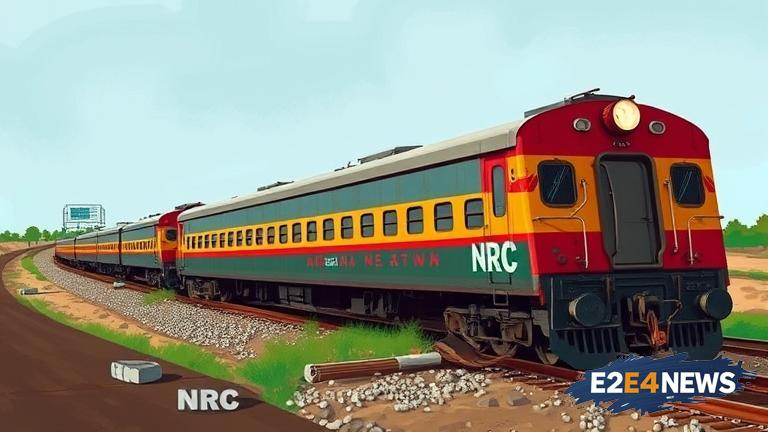The Nigerian Railway Corporation (NRC) has confirmed a train derailment on the Abuja-Kaduna route, sparking concerns over passenger safety. The incident occurred on a recent evening, with multiple cars of the train leaving the tracks. Fortunately, there have been no reports of fatalities, but several passengers were injured and taken to nearby hospitals for treatment. The cause of the derailment is currently under investigation, with officials from the NRC and other relevant agencies working to determine the root cause of the incident. The Abuja-Kaduna train route is a popular mode of transportation for many Nigerians, and the derailment has raised concerns about the safety and reliability of the country’s rail network. The NRC has apologized for the incident and assured passengers that it is taking steps to prevent such incidents in the future. The corporation has also announced plans to conduct a thorough investigation into the derailment and to implement new safety measures to ensure the safe transportation of passengers. The incident has sparked widespread reaction on social media, with many Nigerians calling for improved safety measures on the country’s rail network. The Nigerian government has also responded to the incident, with the Minister of Transportation promising to take action to address the safety concerns. The derailment is the latest in a series of incidents to affect the Nigerian rail network, highlighting the need for urgent attention to be given to the safety and maintenance of the country’s trains and tracks. The NRC has faced criticism in the past over its safety record, and the latest incident is likely to add to the pressure on the corporation to improve its performance. Despite the challenges facing the Nigerian rail network, many passengers remain loyal to the service, citing its convenience and affordability. However, the derailment has highlighted the need for significant investment in the country’s rail infrastructure to ensure the safe and reliable transportation of passengers. The Nigerian government has pledged to invest in the rail network, but the pace of progress has been slow, and many Nigerians are growing impatient with the lack of progress. The incident has also raised questions about the regulation of the rail industry in Nigeria, with some calling for greater oversight and enforcement of safety standards. The NRC has defended its safety record, pointing to the many safe journeys that take place on the network every day. However, the derailment has underscored the need for constant vigilance and improvement to ensure that the risk of accidents is minimized. As the investigation into the derailment continues, passengers and stakeholders will be watching closely to see what steps are taken to address the safety concerns. The incident has also highlighted the importance of emergency preparedness and response, with many praising the swift response of emergency services to the incident. The derailment is a reminder that safety is a collective responsibility, and that all stakeholders must work together to ensure the safe transportation of passengers. The NRC has promised to provide updates on the investigation and to implement any necessary measures to prevent similar incidents in the future. In the meantime, passengers are advised to remain vigilant and to report any concerns or incidents to the authorities. The incident has sparked a national conversation about rail safety in Nigeria, and it is hoped that it will lead to meaningful improvements in the safety and reliability of the country’s rail network.




